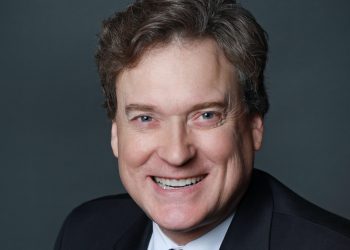Increasing access to quality health care in Iowa is a priority. Sadly, rural hospitals suffered during the COVID-19 pandemic as many could not offer out-patient procedures, which resulted in a major financial loss and forced some patients to go without care. Many rural hospitals also closed maternity wards and more mental health care providers are needed. To increase access to health care policymakers, need to consider repealing obsolete Certificate of Need (CON) laws, which restrict access and competition.
The purpose of a CON law is to regulate (limit) health care supply unless a need is determined by a state government agency or board. When CON laws were introduced in the 1970s, it was hoped that they would be able to control the cost of health care by preventing health care facilities from unnecessary and potentially costly expansions. In the 38 states and the District of Columbia that still have CON laws on the books, this essentially means health care facilities must obtain government approval to build, expand, acquire new equipment, or offer additional services.
Iowa’s CON law is intended to regulate “whether someone is allowed to open a new facility; it is explicitly designed to make sure new facilities are not allowed to take customers away from established healthcare facilities.” The Institute for Justice argues, this is nothing more than granting “certificates of monopoly,” and Iowa’s law “has absolutely nothing to do with public health or safety.”
CON laws require a health care provider to apply for approval “prior to the offering or development of a new or changed institutional health service.” The CON application process can take 60-90 days and fees can range from $600-$21,000. During the application process, any competitor can submit arguments on why a CON should be denied. Therefore, CON laws are protectionist measures, because they allow competitors to object to potential competition.
Imagine if Hy-Vee or Fareway could object to a new grocery store opening by arguing that they already provide all necessary service. CON laws protect existing health care providers, especially larger facilities that do not want the competition.
The COVID-19 pandemic demonstrated the need for immediate health care services. The majority of CON states suspended healthcare-related regulations to effectively deliver medical services. Governor Kim Reynolds temporarily suspended the CON requirement for health care facilities that needed to increase bed capacities for potential patients. The Institute for Justice reports “as of May 15, 2020, 25 jurisdictions had suspended or loosened CON requirements.” This means, “two-thirds of CON jurisdictions promptly recognized that healthcare providers required greater flexibility to respond to the pandemic.” In other words, CONS truly are a barrier to access to care.
But this is not the only proof that CON laws are a barrier to care. The research also shows that CON laws have failed their original goal of lowering health care costs and increasing access to care. What they have been particularly effective in doing though, is limiting the supply of health care facilities and services. Health care costs increase as competition decreases. In the process, people suffer as they are faced with greater difficulties in obtaining access to needed care.
CON laws raise health care costs. A recent study by the Mercatus Center found, “patients residing in counties restricted by CON laws spend more per Medicare beneficiary and have higher utilization rates in ambulance services, emergency departments, and readmissions.”
The Mercatus Center at George Mason University noted, CON laws limit access to medical care in rural areas: “Comparing rural areas in CON states with rural areas in non-CON states, research finds that the presence of a CON program is associated with fewer rural hospitals.”
The Institute for Justice notes, CON laws require people to not only pay more for health care, but “per capita, patients in CON states have access to fewer hospitals, hospital beds, dialysis clinics, ambulatory surgical centers, medical imaging centers and hospice facilities.”
The pandemic demonstrated regulations make it more difficult to deliver health care services, especially during times of emergency, but the problems with CON laws continue outside the pandemic. Iowa should join the 12 other states that have repealed their CON laws. Repealing, total or partial, Iowa’s CON laws would help to expand health care access and make it more affordable for everyone.













